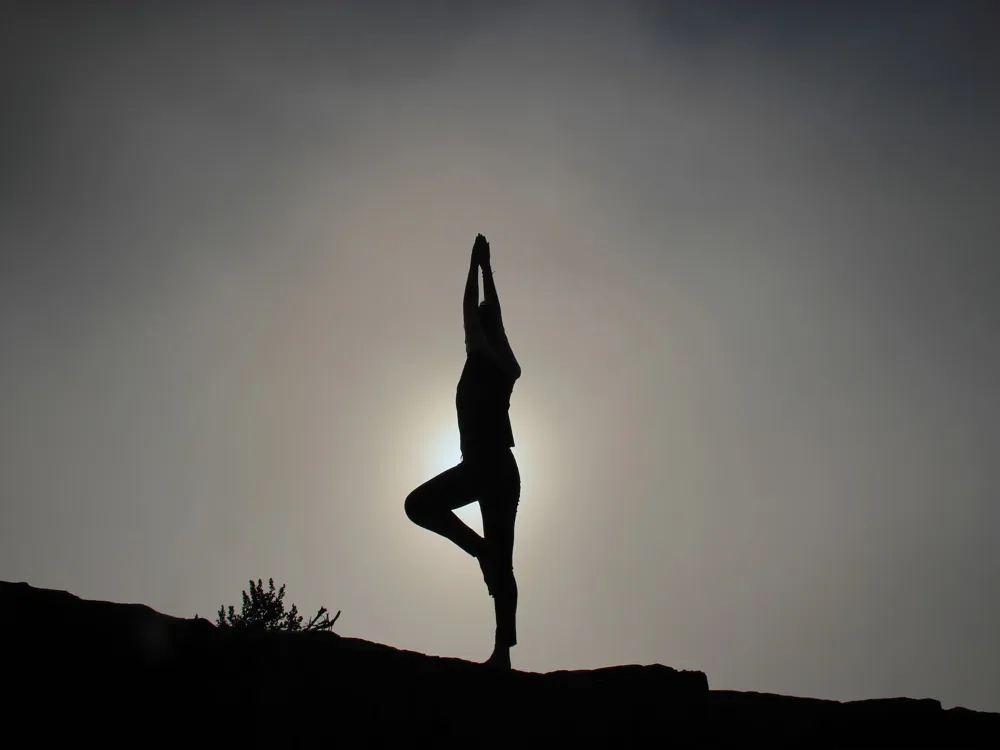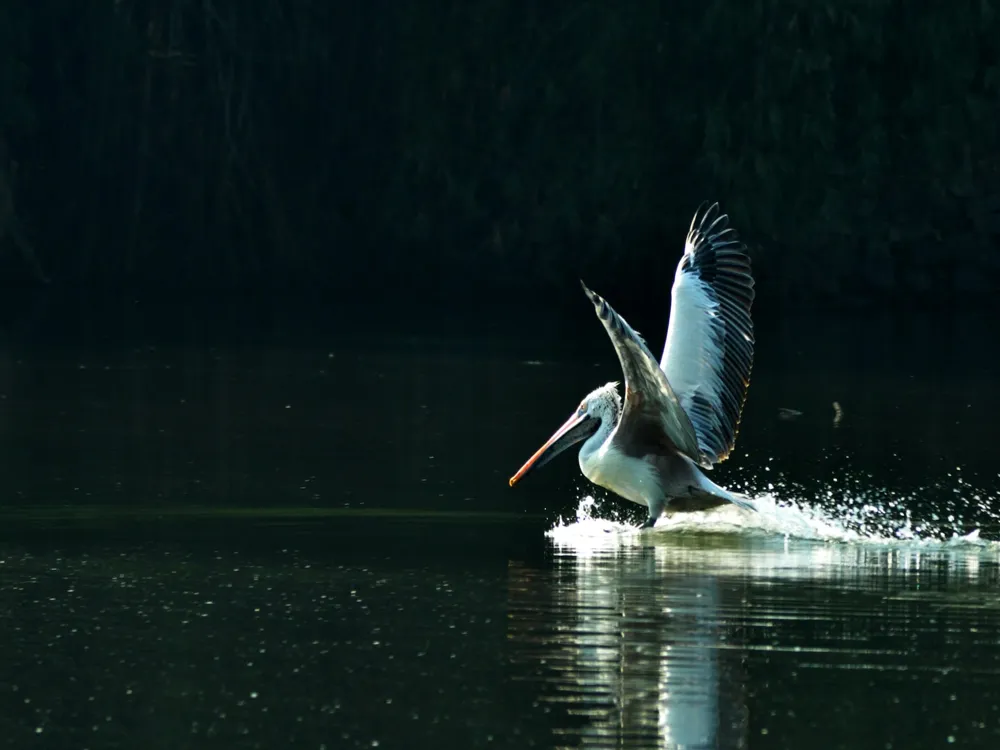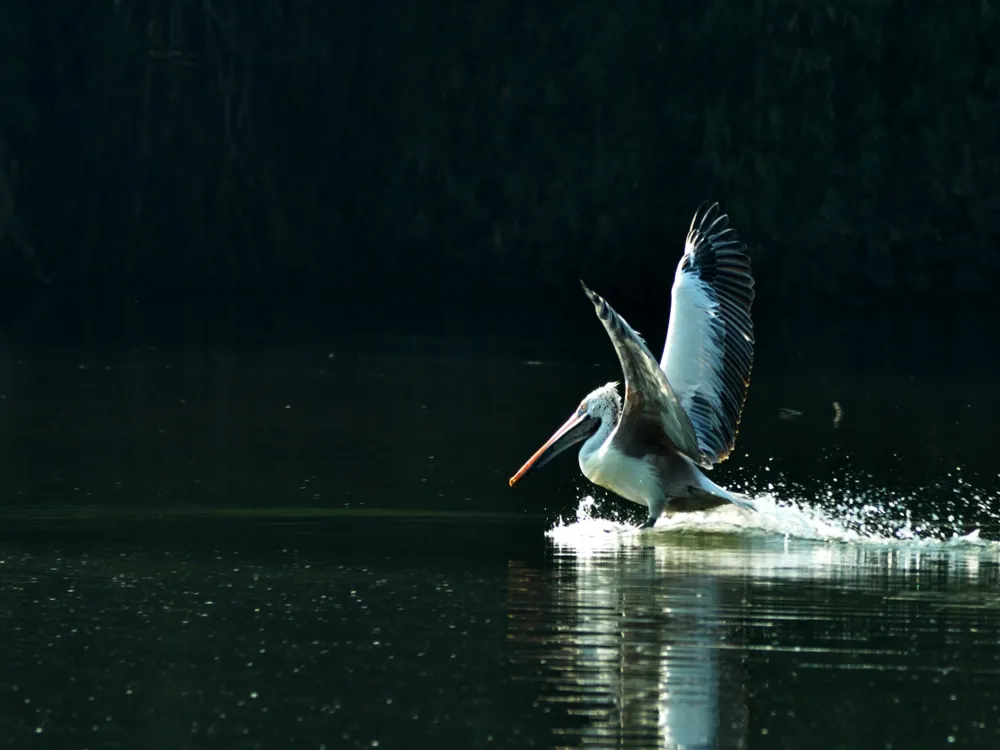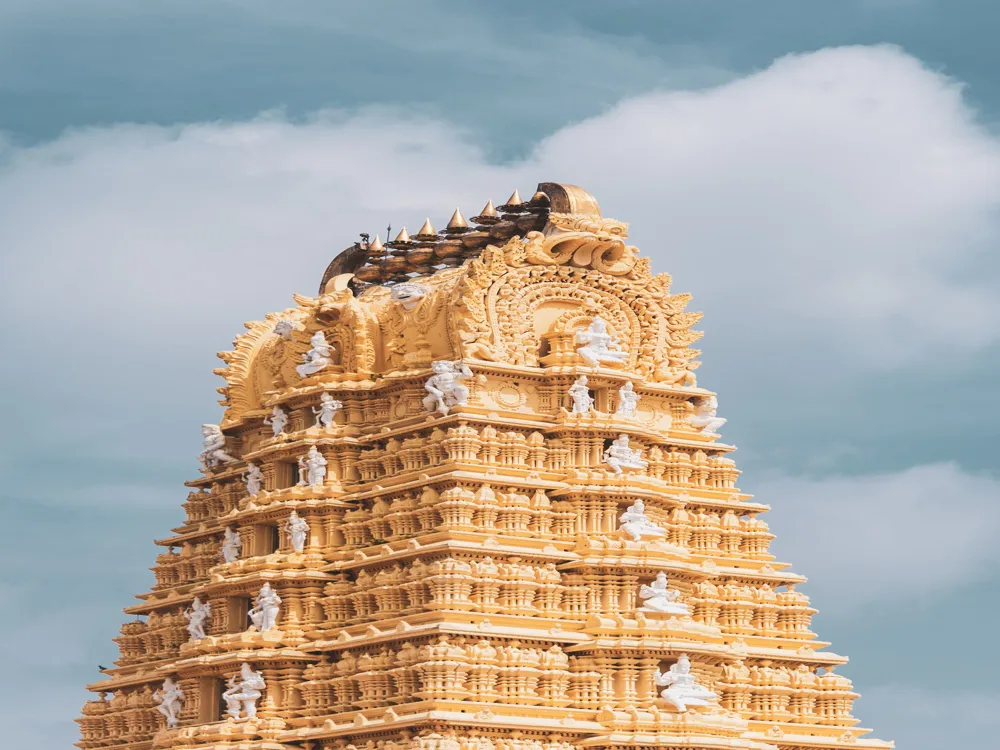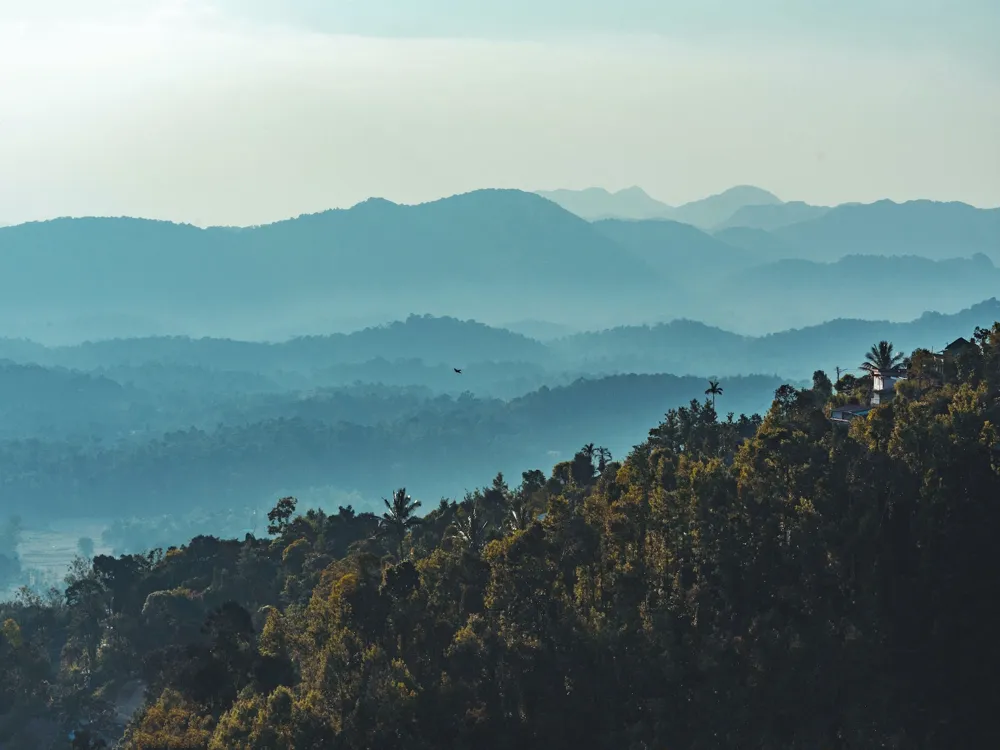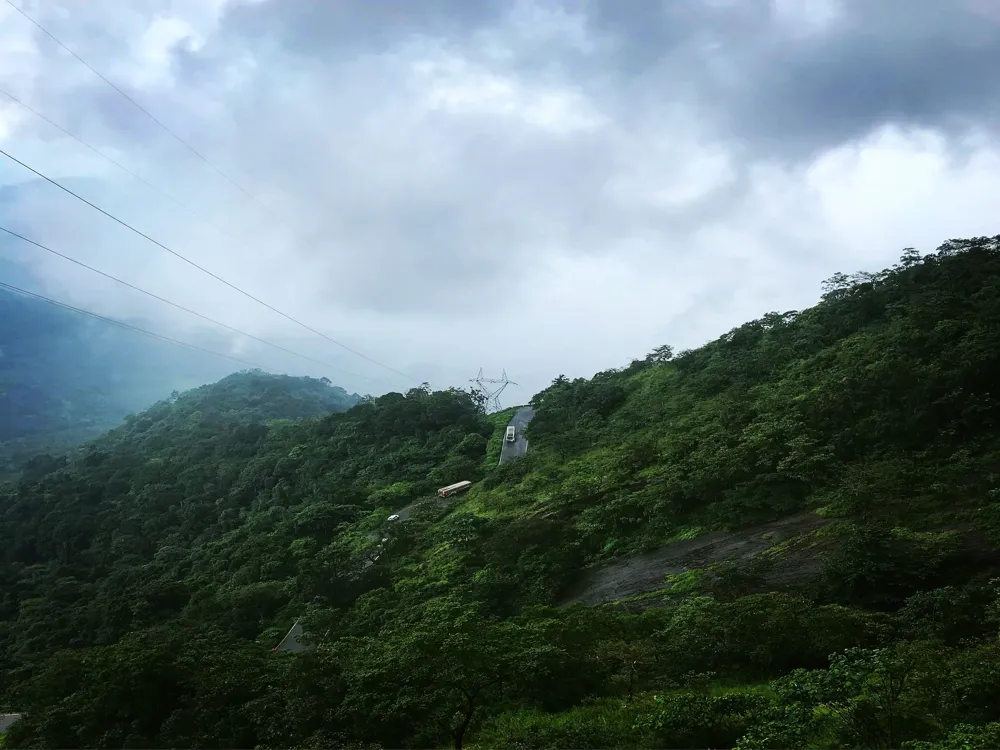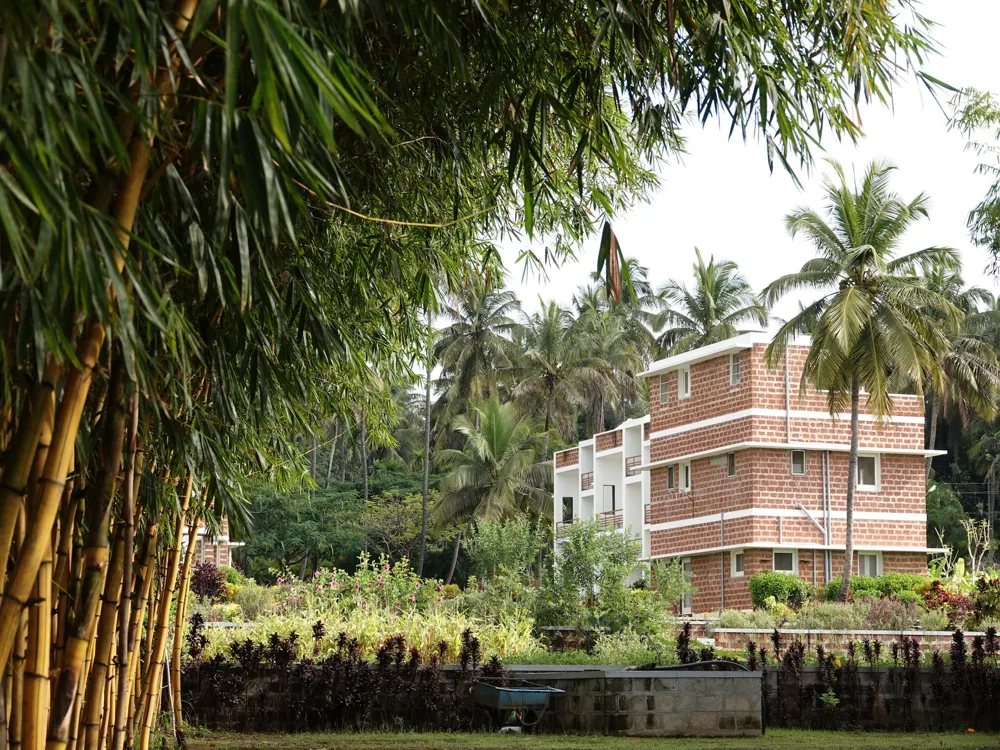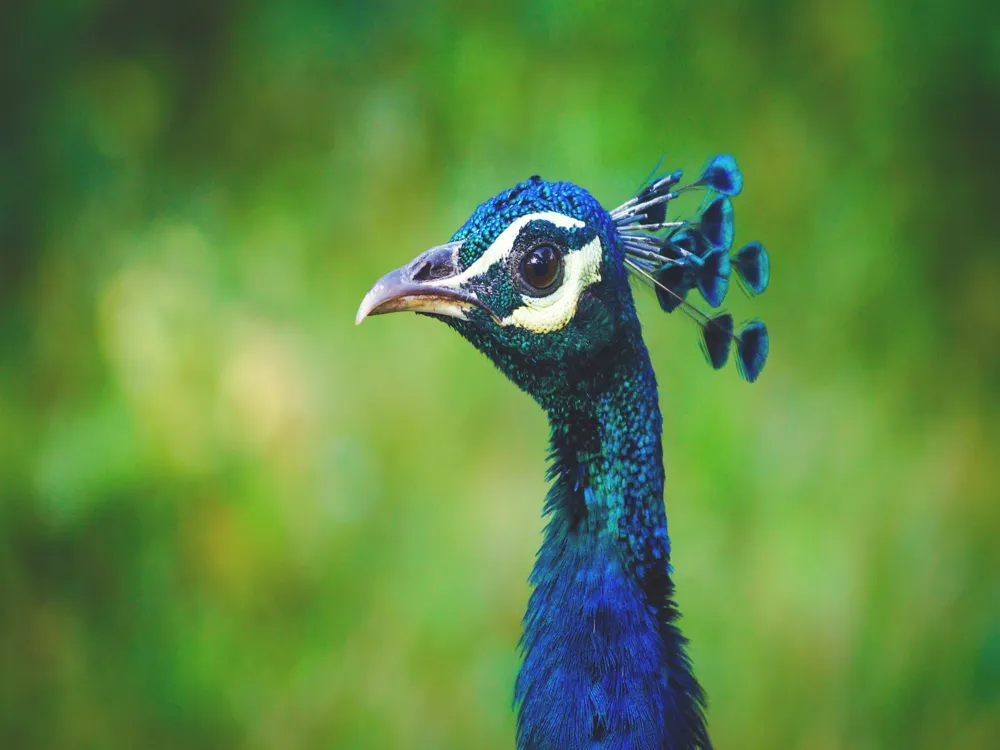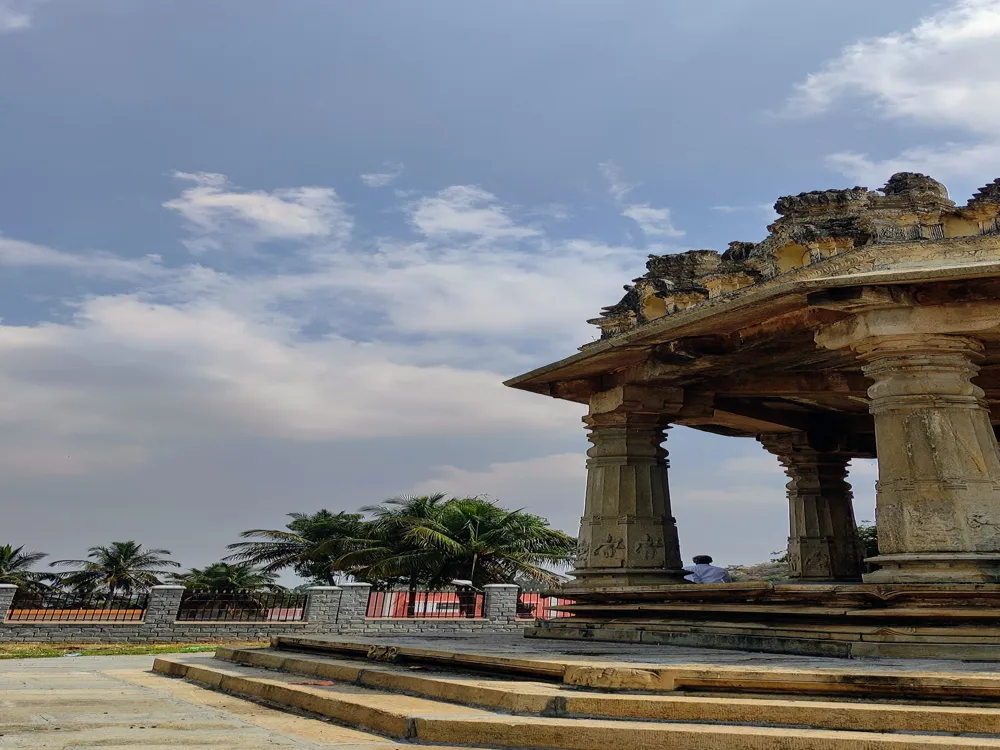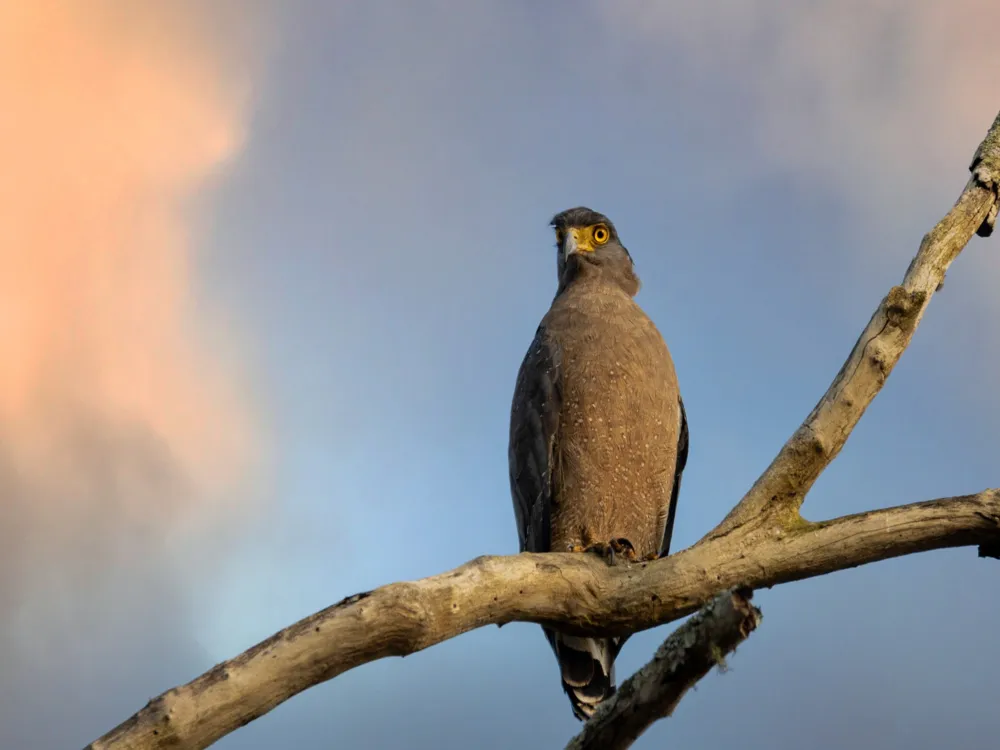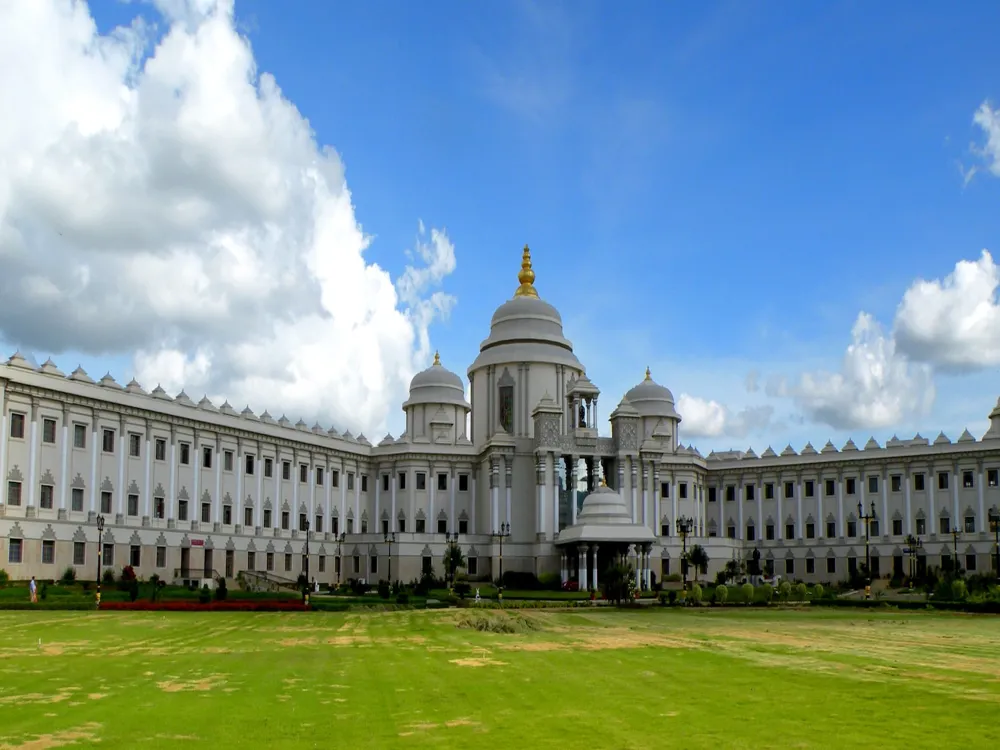The Chamundeshwari Temple perched atop the Chamundi Hills in Mysore, Karnataka, is a splendid symbol of historical and cultural significance. Dedicated to the goddess Chamundeshwari, a form of Shakti, this temple is not only a revered place of worship but also a testament to the architectural grandeur of ancient India. Dating back to the 12th century, it has undergone several renovations and expansions over the centuries, especially under the patronage of the rulers of the Wodeyar dynasty. The temple's location offers breathtaking views of Mysore city and its surrounding valleys and hills. It is deeply intertwined with the local folklore and legends, notably linked to the celebration of the Mysore Dasara festival. The deity, Goddess Chamundeshwari, is worshipped as a symbol of power and victory, commemorating her triumph over the demon Mahishasura, which is also symbolically important for the city of Mysore. The Chamundeshwari Temple serves as a hub for spiritual activities, attracting thousands of pilgrims and tourists every year. It stands not just as a place of religious importance but also as a beacon of the rich cultural heritage of Karnataka. The temple is an essential pilgrimage site for devotees, while also offering a unique experience for history enthusiasts and tourists with its blend of spiritual and historical allure. The architectural style of the Chamundeshwari Temple is a magnificent example of Dravidian temple architecture. Its intricate carvings, expansive courtyards, towering gopuram (gateway tower), and finely sculpted figures of deities, mythological creatures, and stories from Hindu scriptures capture the essence of ancient craftsmanship and religious artistry. The main sanctum, where the deity resides, is constructed in a pyramidal shape, typical of Dravidian temples. This is surrounded by several smaller shrines and halls, including the Mahamandapa, Navaranga, and the Prakara. The use of granite in construction adds to the temple's grandeur and durability. The gopuram is an especially notable feature, elaborately decorated with various gods and goddesses and crowned by a golden kalasha (finial), visible from afar and shimmering in the sunlight. The temple complex is also adorned with a series of intricate murals and frescoes that depict scenes from Hindu mythology and the epics, the Ramayana and the Mahabharata. These artworks not only embellish the temple but also serve as a medium to educate and convey stories and morals to the devotees. Another striking feature of the temple is the Nandi statue, located halfway up the hill. Carved out of a single piece of black granite, this statue is one of the largest in India and is a testament to the skill and craftsmanship of the artisans of the time. The journey up the hill to the temple, either by steps or road, offers various vantage points to appreciate the temple's architectural beauty amidst the natural landscape. Visitors are advised to dress modestly, as the temple is a place of worship. Traditional Indian attire is preferred. It's important to maintain a decorous and respectful demeanor within the temple premises. The temple is open daily from early morning to late evening. However, visiting during the Mysore Dasara festival offers a unique experience, as the temple and the city are festively decorated and numerous cultural events are held. Basic facilities like restrooms and drinking water are available. There are also shops selling religious artifacts and souvenirs. It's advisable to carry water and snacks, especially if traveling with children or elderly people. Photography is usually allowed in the temple premises but not inside the main sanctum. Visitors should look for signage indicating photography restrictions or ask for permission. The temple is accessible by road, and there are steps for those who wish to trek up the hill. For the elderly or differently-abled, special arrangements can be made with prior notice. The Chamundeshwari Temple is well-connected by road and is approximately 13 kilometers from Mysore city. Visitors can reach the temple by bus, taxi, or private vehicle. The nearest airport is the Mysore Airport, about 23 kilometers away. For those coming from other cities, Mysore Railway Station is the nearest major railway station. From the railway station or the city center, one can easily hire a cab or take a bus to reach the temple. For adventure enthusiasts, trekking up the Chamundi Hills to reach the temple is also a popular option, offering scenic views and a sense of accomplishment upon reaching the top. Read More:Overview of Chamundeshwari Temple, Mysore, Karnataka
Architecture of Chamundeshwari Temple
Tips When Visiting Chamundeshwari Temple
Dress Code and Conduct
Timing and Festivals
Facilities and Amenities
Photography
Accessibility
How To Reach Chamundeshwari Temple
Chamundeshwari Temple
Mysore
Karnataka
NaN onwards
View mysore Packages
Weather :
Label : Must Visit
Tags : Temple
Timings : 7:30 AM - 2:00 PM, 3:30 PM - 6:00 PM, 7:30 PM - 9:00 PM
Dress Code : No dress code but modest attire is strictly required.
Planning a Trip? Ask Your Question
Mysore Travel Packages
View All Packages For Mysore
Top Hotel Collections for Mysore

Private Pool

Luxury Hotels

5-Star Hotels

Pet Friendly
Top Hotels Near Mysore
Other Top Ranking Places In Mysore
View All Places To Visit In mysore
View mysore Packages
Weather :
Label : Must Visit
Tags : Temple
Timings : 7:30 AM - 2:00 PM, 3:30 PM - 6:00 PM, 7:30 PM - 9:00 PM
Dress Code : No dress code but modest attire is strictly required.
Planning a Trip? Ask Your Question
Mysore Travel Packages
View All Packages For Mysore
Top Hotel Collections for Mysore

Private Pool

Luxury Hotels

5-Star Hotels

Pet Friendly







